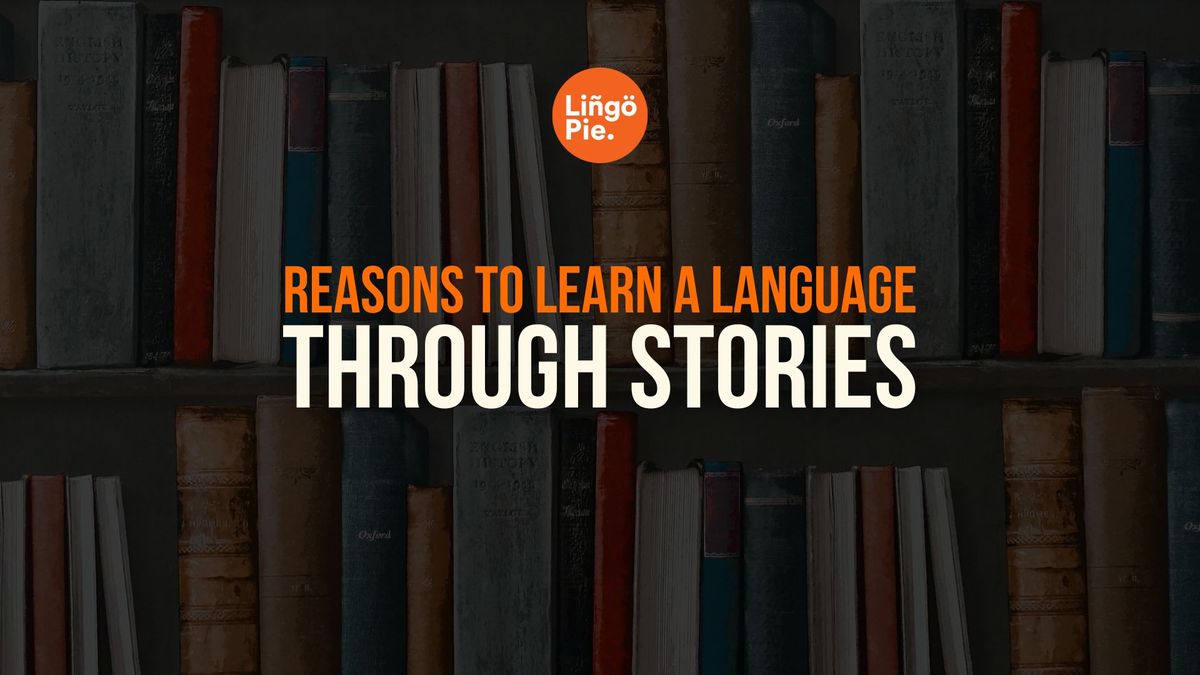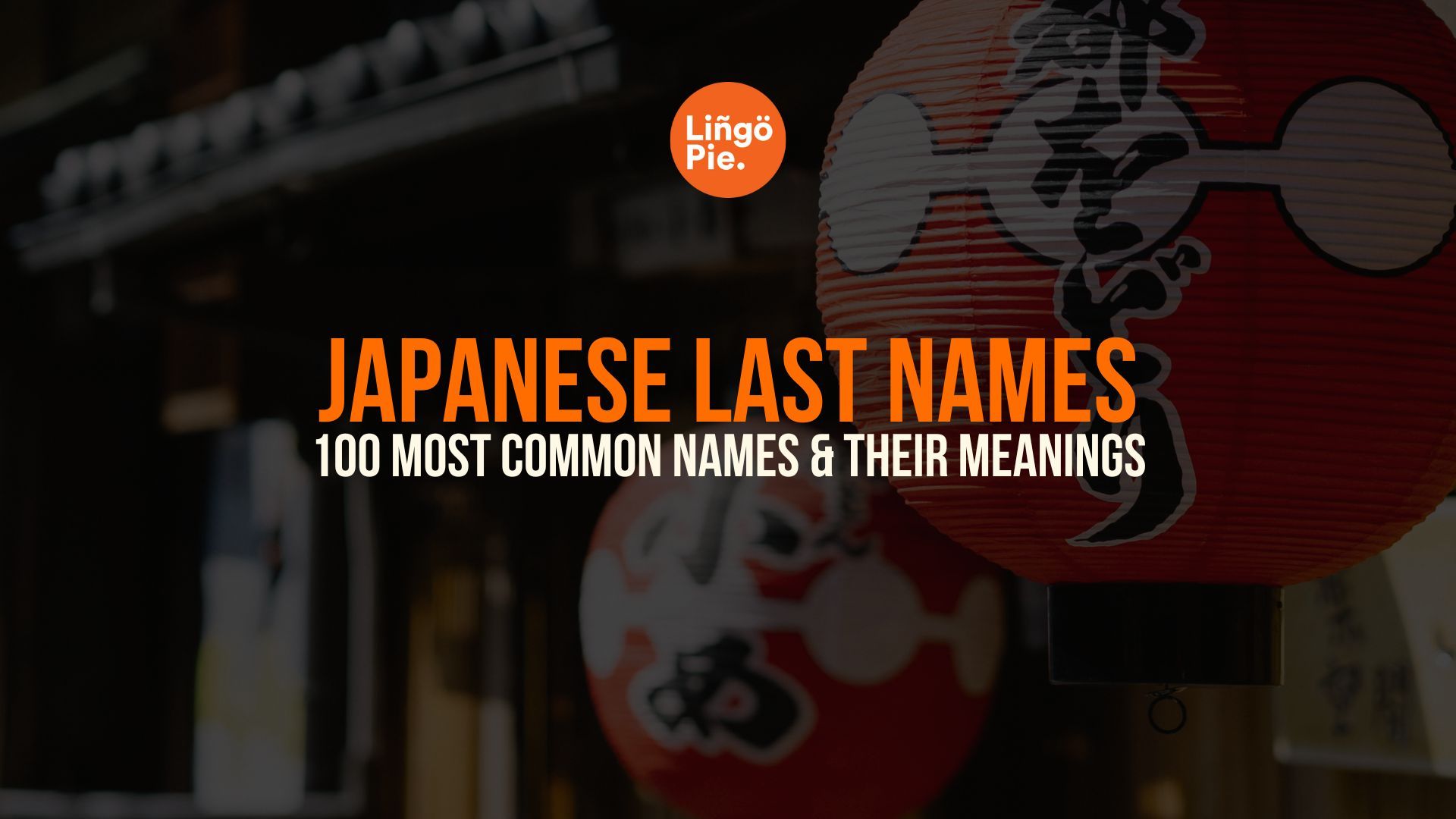Remember when you had that Spanish learning spike that made you sign up for your first course? No doubt, motivation was high when you began to learn a language. But in reality, it’s easy to lose that spike when you get lost in grammar, textbooks, conjugations, tests, or even vocabulary memorization.
Is there another way to learn languages, though? Can you really put your textbook aside and learn Italian or Japanese differently?
Short and easy answer: yes!
So, instead of losing yourself in the old academic language-learning methods, I want to share 7 science-backed reasons to learn a language using stories. Doing so will not only guarantee you'll have more fun as you learn. You'll also learn more effectively than if you stick to the school way.
- How To Read Spanish: A Guide For Beginners
- 6 Best FREE Korean Learning Websites For Beginners
- 8 Best Turkish Movies On Netflix For Learning Turkish

What Are These Stories?
I learned English at the end of my teen years (my first language is Spanish, by the way). I was not a bright student, nor was I gifted at learning languages. In fact, throughout my life, and until I was 16, I had taken many different English courses.
Here's a quick summary of my time learning English through school methods:
- From kindergarten until I was 8 years old, I took English lessons because it was required in the country where I grew up.
- When I was 8, my parents paid a private tutor to give English lessons to my cousin and me.
- When I was in 6th grade, my dad bought a textbook with some old cassettes so that we could learn English together.
- When I got to my last year of high school, I transferred to a school that emphasized English as a second language.
- Because this school required a certain amount of hours in English training, I had to take 6 months of extra coursework to graduate.
If we were to think logically, anyone could look at the “curriculum” above and say: “That’s a lifetime of English training. This guy certainly knows something about this language.”
But was I able to have fluent English conversations with native speakers?
No.
Could I watch an entire English movie and understand everything in it?
Absolutely not!
It wasn’t until I began to learn with short stories that I actually started to feel progress, and when I say ‘stories,’ I mean content like:
- TV shows
- Movies
- Listening stories
- Short stories in your target language
That was the core of what actually gave me fluency in English. Yes, other activities in the process brought me to a high proficiency level in this new language, but stories were the foundation of my progress.
Basically, I’m talking about content that tells you an account of real or fictional characters or events.
- Something interesting to you
- An engaging short or long narrative that provides enjoyment
- 10+ Easy German Short Stories For Beginners
- 10 Best Spanish Short Stories For Beginners [Adults And Kids]
- 5 Best Japanese Textbooks For Beginners
Reasons Why You Should Learn Through Stories
Here are 7 reasons why using stories to learn a language worked for me, while the academic methods didn’t do much.

1. Stories Stick in Your Memory for a Long Time
“A long time ago, in a galaxy far, far away…”
How many times have you seen these words on a screen since they were released in the first Star Wars movie back in 1977?
No matter where you read those words, you’ll at least remember Lord Darth Vader’s breathing as soon as you see them.
But why do we remember it so easily?
Well, because stories are loaded with emotions, and hence, they stick in human minds. We have used them throughout history to teach lessons to others.
More importantly, research in cognitive psychology has demonstrated that our brains are wired for narrative. A Stanford study found that information presented in a narrative format was remembered up to 22 times more effectively than that presented in a purely factual format.
This is because stories activate multiple brain regions simultaneously, including those responsible for language processing, sensory experience, and emotional response. When you hear or watch a story, you are naturally drawn to support the hero when he’s about to fail his mission and cheer when he defeats his enemy.
In other words, stories actually get you involved. Heck, they may even make you cry or laugh!

2. Stories Are More Fun Than Lessons
The second reason to start using stories to learn languages instead of lessons is simple.
Stories are fun!
If you watch a movie that you really like or read a book that you love in your target language, at some point, you will experience what scientists call the “Flow State of Mind.”
Psychologist Mihaly Csikszentmihalyi's research on "flow" shows that when we're engaged in enjoyable activities that challenge us just the right amount, we enter a state of heightened focus and enjoyment. Neuroscience research reveals that during flow states, the brain releases dopamine, norepinephrine, endorphins, anandamide, and serotonin—a cocktail of neurochemicals that enhance learning, memory formation, and positive associations.
Experts agree that our brains learn best during this period, but how often do we lose track of time during a grammar lesson?
If you’re a grammar nerd and you have a good teacher, then you’re probably thinking: “Well, I do enjoy my grammar lessons.”
But if you’re like me, and like most people who don’t enjoy grammar that much, then you know that you can barely focus for about 15 minutes before looking at your watch for the first time.
But learning as you have fun is effective, powerful, and the most optimal way to learn a language.
It is so good that, in my case, I can even remember some lines of the TV shows and movies that I saw during my English learning journey.
Like Jessie Pinkman’s answering machine in breaking bad… you know:
“Yo yo yo. 148-3 to the 3 to the 6 to the 9, representing the ABQ, what up, b..#$?”
No, that’s not proper English, but that’s how Jessie talked in Breaking Bad!
Now, ask me about a grammar point, and I’ll need some more time to prepare a good explanation.

3. Stories Teach You the Real Vocabulary
One of the biggest problems I find with learning a language using a textbook is the kind of vocabulary they teach. Usually, in these resources, you’ll find perfectly pronounced words and impeccable, well-structured sentences.
What’s the problem, then?
Well, in real life, nobody ever uses language this way, and this is why many committed and disciplined students can’t understand native speakers when they visit countries that speak the language they’re studying.
Sociolinguistic research has established the concept of "register" in language—essentially, how language varies depending on context and audience. Research has found that traditional textbooks typically present language in what's called "formal register," while 80-95% of daily communication occurs in casual or informal registers. This mismatch creates a comprehension gap for language learners.
This is also why I had to turn on the dual subtitles and repeat the scene of Jessie Pinkman’s answering machine back when I was watching Breaking Bad.
The thing is that in real life, people:
- Shorten words
- Use idioms and slang
- And even mispronounce the words!
You can find exactly that in movies or TV shows because actors try to be as natural as possible in these kinds of stories.

Lingopie Short Stories bridges this gap by featuring both natural language patterns and helpful explanations of slang, idioms, and colloquialisms that wouldn't appear in traditional textbooks.
4. Stories Give You Correct Grammar
Stories are a great source of exposure to the language you’re learning because they’ll present you with correct grammar in context.
Yes, you’ll see natural grammar mistakes that speakers make, but mostly, all you’ll see is the grammar that natives understand and use.
That’s what you need to learn if you want to communicate with real human beings in the language you’re studying.
Now, every time you hear a phrase correctly structured, it’ll be reinforced in your brain. This means that the more stories you hear in your target language, the more your brain will identify what’s correct and what’s not.
The bottom line here is that using stories to learn a language will provide exposure to grammar in context, not grammar lessons.

5. Stories Show You the Correct Context to Use Idioms and Slang
There’s nothing better than seeing idioms and slang used naturally in stories. Why? Because you’ll see the circumstances, emotions, tone, and intentions the characters experience when they use these expressions.
Research in pragmatics (the study of contextual meaning in language) shows that understanding when and how to use expressions is as important as knowing their definitions. In fact, studies found that learners who encountered idioms in narrative contexts had 74% better retention and appropriate usage compared to those who simply memorized idiom lists.
For example, in one of my English listening stories, the narrator talked about a guy who wanted to “have his cake and eat it too.” It meant that he wanted to be a famous football player and a famous movie star at the same time, but he could only be one thing.
Today, every time I hear this idiom in real life, I know how to use it because I remember this particular character from the story I heard back then.
This experience illustrates that since stories are mostly using a very spontaneous vocabulary, they’ll expose you to:
- Idioms
- Slang
- Real bad pronunciation native speakers use
- Shortened words
Not to mention, this is something you will rarely find in textbooks or even lessons with teachers.

6. Traditional Language Lessons Are Stressful
One of the worst parts of lessons was forcing myself to do things I didn’t want to do. I once had to stand up in front of the whole class back in school and explain how to make a chocolate cake in English. I’m an introvert, and doing that was a stressful challenge.
Looking back, what I remember the most about it was all the stress, embarrassment, and terrible pronunciation coming out of me.
Foreign Language Anxiety (FLA) is a well-documented phenomenon in language acquisition research. Researchers found that stress hormones like cortisol interfere with memory formation and language processing. When anxiety is reduced, language learning efficiency increases by up to 30%. Story-based learning creates what psychologists call a "low-affective filter" environment where learners feel safe to engage with the language.
That type of stress isn't going to happen if you immerse yourself in good stories from your target language because, as we saw in point number 2, stories are fun resources to learn languages.
So, if you want to learn a language effectively, then make sure you have fun, you’re relaxed, and you enjoy your learning time.
7. The Best Language Learners Love Using Stories
Researchers proved time and time again that immersion in authentic content was the single strongest predictor of eventual fluency, outperforming formal instruction by a significant margin. If you google for the most popular online polyglots and read their stories, you’ll find that all of them enjoy stuff like:
- Reading books or newspapers in foreign languages
- Watching TV shows or movies
- Listening to podcasts or YouTube channels
Even kids listen to stories from TV, their parents, or even teachers when they’re just acquiring their first language.
So, if you seriously want to learn a language, then using real materials like short stories, movies, and TV shows in your target language can definitely help.

How to Get Started with Story-Based Learning
Remember how I told you I learned English through stories? Well, Lingopie has taken that concept and supercharged it with the brand-new Lingopie's Short Stories – the newest feature that'll change how you learn languages.
Imagine having a collection of captivating mini-stories where every word becomes an opportunity to learn. No more wrestling with clunky dictionaries or losing your place in audio tracks!
With Lingopie Short Stories, you'll get:
- Bite-sized stories (3-10 minutes) perfect for busy language learners
- Text that lights up as the native speaker narrates – magical, right?
- One-click translations for any word that stumps you
- Automatic saving of words you're learning
- Fun quizzes that actually adapt to what you struggle with
The best part? The stories inside are guaranteed to fit every mood and interest. Feel like learning about quirky cultural traditions? We've got you. Want a quick laugh during your coffee break? There's a story for that. Curious about historical events told in your target language? Just click and start reading!
Want to try it out?
- Log into Lingopie
- Hit the "Short Stories" tab at the top
- Pick a story that catches your eye
- Start clicking, listening, and learning!
Trust me, once you experience learning through these interactive stories, you'll wonder how you ever tolerated those boring textbooks. It's learning that feels like entertainment – exactly what your brain craves!
Time To Turn A New Page On Your Learning
Remember, the path to fluency isn't paved with flashcards and grammar exercises. It's built on moments of genuine connection with the language – those "aha!" instances when you understand a joke, grasp a cultural reference, or suddenly realize you've been following along without translating in your head.
So here's my challenge to you: Give your textbook a break. Sign up for a FREE 7-day trial, log into your Lingopie trial account, pick a Short Story that catches your eye, and just dive in. Click on words, listen to the narration, and take the quiz afterwards.
Do this for just 10 minutes a day for a week, and I guarantee you'll feel the difference. Your vocabulary will expand, your comprehension will improve, and most importantly – you'll actually look forward to your language practice.







![5 Official Spanish Language Tests To Show Your Proficiency Level [Guide]](/blog/content/images/size/w300/2025/06/Spanish-Language-Tests.jpg)
![Why Memorizing Spanish Words Won’t Make You Fluent [Tips]](/blog/content/images/size/w300/2025/06/how-to-practice-spanish-vocabulary.jpg)
![How to Improve Your Polish Conversation Skills [5 Best Tips]](/blog/content/images/size/w300/2025/06/improve-polish-conversation-skills.jpg)
